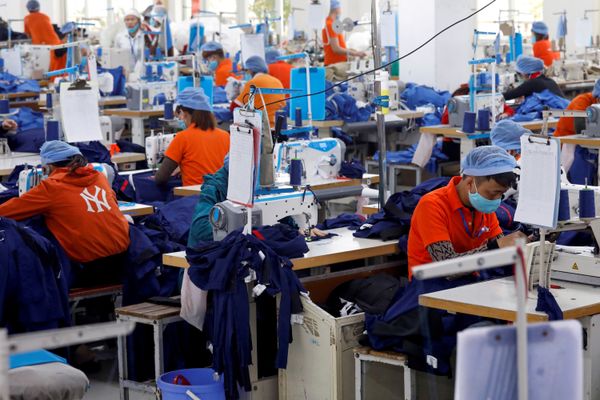HANOI/BANGKOK, April 3 — Southeast Asian nations reeled on Thursday as they were hit with some of United States (US) President Donald Trump's heftiest tariffs, which now threaten the economies that have benefited from investment since he imposed levies on China during his first term.
Vietnam, slapped with 46 per cent tariffs, called for talks with Washington in order to reconsider "unfair" US duties and Thailand's Prime Minister said she would pursue negotiations to try to reduce the 37 per cent rate her country faces — far greater than the 11 per cent it had expected.
Both countries are heavy exporters to the US, having gained from the so-called China+1 strategy, whereby manufacturers, seeking to escape tariffs on China, shifted some of their Chinese production to nearby countries in the region.
"We have to negotiate and get into details. We cannot let it get to where we miss our GDP target," said Thai Prime Minister Paetongtarn Shinawatra.
Six of the nine Southeast Asian countries listed by Trump were slapped with much bigger-than-expected tariffs of between 32 per cent and 49 per cent. By comparison, the level for the European Union was 20 per cent, Japan's was 24 per cent, and India's 27 per cent.
So far, none of the Southeast Asian nations have spoken of retaliatory tariffs.
Vietnam, where companies like Apple, Nike, and Samsung Electronics have large manufacturing operations, appears particularly exposed. Its exports to the United States were worth US$142 billion (RM630.9 billion) last year, nearly 30 per cent of its gross domestic product.
Vietnam's benchmark stock index slid 6.7 per cent, on course for its biggest one-day drop since January 2021, while its currency, the dong, lost 0.7 per cent to hit an all-time low.
Vietnam's trade minister Nguyễn Hồng Diên sent a diplomatic note to the US on Thursday and said he was seeking to talk to the US Trade Representative to revisit the decision he deemed unfair, according to a report on state media.
Prime Minister Phạm Minh Chính had earlier ordered up a task force to address the situation after an urgent cabinet meeting on Thursday, state media said. He noted the country's eight per cent growth target for this year remained unchanged.
"Vietnam's export-driven growth model has been highly successful, attracting multinational companies ... However, a 46 per cent US tariff would directly challenge this model," said Vietnam-based international law firm Luther's head Leif Schneider.
ING estimates that the tariffs put 5.5 per cent of Vietnam's gross domestic product at risk. Vietnam made a number of recent concessions to Washington to avoid tariffs, including cutting duties and a pledge to import more US goods, and is likely to offer more in the coming days.
"I expect negotiations to continue on ways to reduce or mitigate the impact of any new tariffs," said the American Chamber of Commerce in Hanoi's executive director Adam Sitkoff.
Hoping for talks
Thai Commerce Minister Pichai Naripthaphan said his government was prepared for negotiations and had high hopes they would go well, citing Thailand's good relations with the US
Thailand is hoping for three per cent growth this year. It has lagged regional peers, growing 2.5 per cent last year, held back by soaring household debt.
The country's stock index, already having taken a battering this year due to its weak economy and last week's earthquake, slipped 1.1 per cent while the baht fell to a one-month low. ING estimates the tariffs put three per cent of the country's GDP at risk.
Malaysia, which was dealt a rate of 24 per cent, announced it would not seek retaliatory tariffs, and it said the Investment, Trade, and Industry Ministry would be actively engaging with US authorities "to seek solutions that will uphold the spirit of free and fair trade."
Cambodia is facing tariffs of 49 per cent that will hurt its garment and footwear industries and promise to crush hopes that it could attract investment relocating from other countries in the region.
It is a "very, very serious situation for the economy," said a Cambodia-based investment consultant who declined to be identified.
There is "nothing that Cambodia can offer as a negotiating tool, and it will be at the back of a very long queue," he added.
— Reuters




